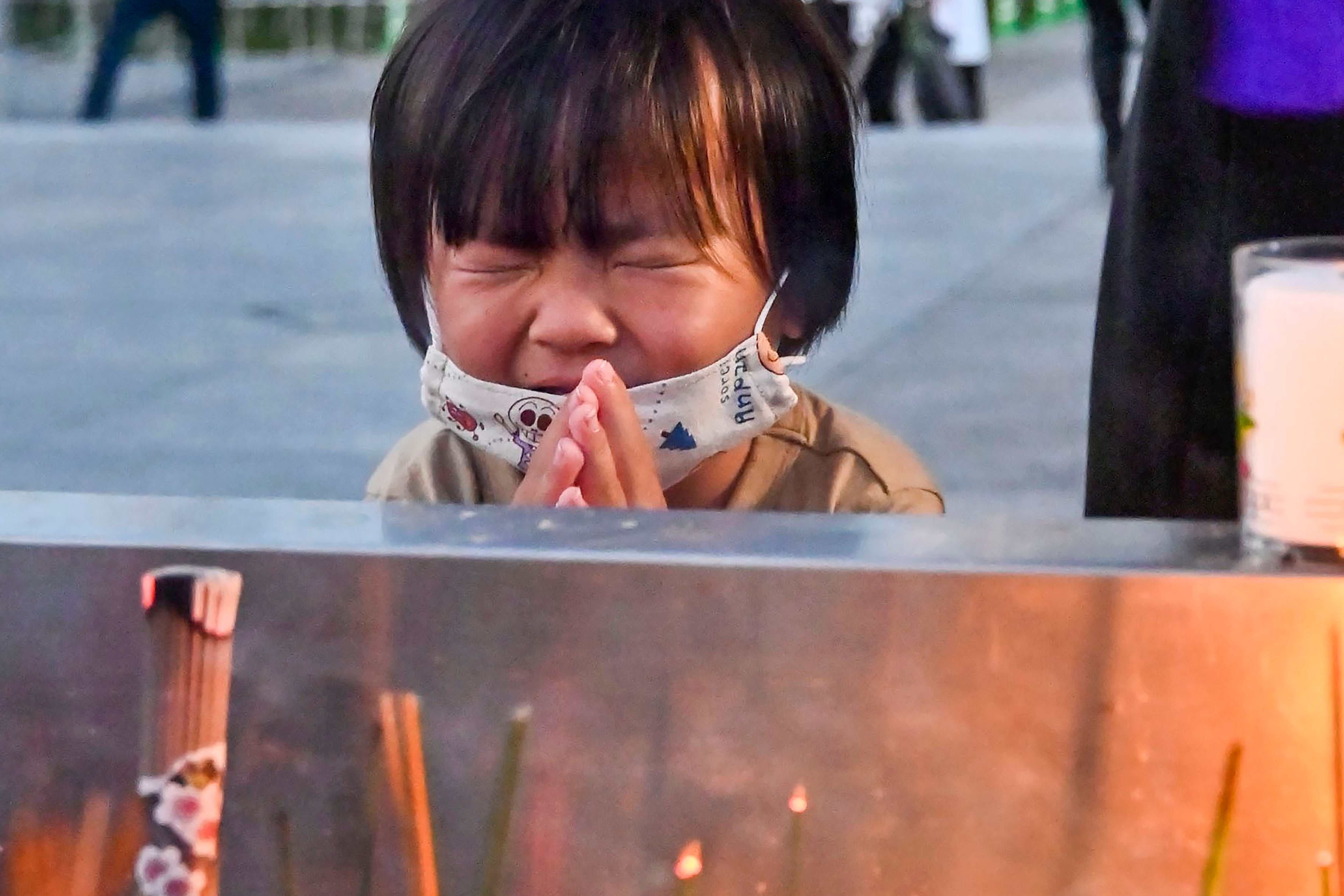Hiroshima marks 76th anniversary of US atomic bombing
Hiroshima has marked the 76th anniversary of the world’s first atomic bombing with the city's mayor urging global leaders to unite to eliminate nuclear weapons, just as they have united against the coronavirus

Your support helps us to tell the story
From reproductive rights to climate change to Big Tech, The Independent is on the ground when the story is developing. Whether it's investigating the financials of Elon Musk's pro-Trump PAC or producing our latest documentary, 'The A Word', which shines a light on the American women fighting for reproductive rights, we know how important it is to parse out the facts from the messaging.
At such a critical moment in US history, we need reporters on the ground. Your donation allows us to keep sending journalists to speak to both sides of the story.
The Independent is trusted by Americans across the entire political spectrum. And unlike many other quality news outlets, we choose not to lock Americans out of our reporting and analysis with paywalls. We believe quality journalism should be available to everyone, paid for by those who can afford it.
Your support makes all the difference.Hiroshima on Friday marked the 76th anniversary of the world's first atomic bombing, as the mayor of the Japanese city urged global leaders to unite to eliminate nuclear weapons, just as they are united against the coronavirus.
Mayor Kazumi Matsui urged world leaders to commit to nuclear disarmament as seriously as they tackle the pandemic that the international community recognizes as “threat to humanity.”
“Nuclear weapons, developed to win wars, are a threat of total annihilation that we can certainly end, if all nations work together,” Matsui said. “No sustainable society is possible with these weapons continually poised for indiscriminate slaughter.”
The United States dropped the world’s first atomic bomb on Hiroshima on Aug. 6, 1945, destroying the city and killing 140,000 people. It dropped a second bomb three days later on Nagasaki killing another 70,000. Japan surrendered Aug. 15, ending World War II and its nearly half-century of aggression in Asia
But countries stockpiled nuclear weapons in the Cold War and a standoff continues to this day.
The global Treaty on the Prohibition of Nuclear Weapons took effect in January after years of civil effort joined by the atomic bombing survivors, or hibakusha. But while more than 50 countries have ratified it, the treaty notably lacks the U.S. and other nuclear powers as well as Japan, which has relied on the U.S. nuclear umbrella for its defense since the war's end.
Matsui renewed his demand that his own government “immediately” sign and ratify the treaty and join the discussion, to live up to the long-cherished wish of atomic bombing survivors. He also demanded Japan provide productive mediation between nuclear and non-nuclear weapons states.
Prime Minister Yoshihide Suga, who attended the ceremony in Hiroshima, did not mention the treaty and instead stressed the need for a more “realistic” approach to bridge the nuclear and non-nuclear weapons states and by strengthening the NPT.
“There are differences in the positions of each country over how to proceed with nuclear disarmament,” he said. "It is necessary to persistently proceed with realistic efforts while bridging between the countries of various positions.”
Many survivors of the bombings have lasting injuries and illnesses linked to the bombs and radiation exposure and faced discrimination in Japanese society.
The government began to medically support certified survivors in 1968 after more than 20 years of effort by the survivors.
Suga announced last month the medical benefits would be extended to 84 Hiroshima survivors who had been denied aid because they were outside a government-set boundary. The victims were exposed to radioactive “black rain” that fell in the city after the bombing and fought a long legal battle for their health problems to be recognized.
Matsui urged Suga's government to further widen support and have generous assistance quickly reach all those still suffering physical and emotional effects of radiation, including the black rain survivors who were not part of the lawsuit.
Thursday’s ceremony at the Hiroshima Peace Memorial Park was significantly scaled down because of the coronavirus pandemic and was also eclipsed by the Olympics being held in Tokyo where even national NHK television quickly switched to the games after the main speeches.